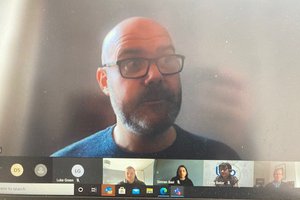The Seventh webinar of our #BBBYouthWelfare series, took place on Wednesday 21st April 2021 and focussed on employment opportunities for young people.
The session was chaired by Kieran Breen, CEO of Leicestershire Cares, and guest speakers were:
Fiona Baker Head of Strategy at Leicester and Leicestershire Enterprise Partnership Ltd
Ross Cox and Simran Basi Development staff from Leicestershire Cares/YES Project
Danny Myers ‘Assistant City Mayor – Jobs and Skills’
In a wide ranging discussion, we noted youth unemployment had risen rapidly (7,035 claimants aged 18 to 24) the economy was changing and Apprenticeship Starts fell from 7,120 in 2018/19 to 5,570 in 2019/20.
Key to tackling this issue is partnering with business and giving young people work experience
Fiona Baker
Our concern is the most disadvantaged young people are getting left behind and finding themselves as the back of an even longer queue
Simran Basi
Simran and Ross shared how they as part of the YES project they work closely with young people providing a lot of individual support, to encourage them to develop the life skills and confidence, to sort out their pressing issues so they are then able to focus on finding work or getting back into education or training.
If a young person is homeless, has mental health issues or is an abusive relationship, you need to support them to deal with these issues before they are able to think about finding a job
Ross Cox
Danny was keen for the city council to use its influence and powers to make the city an attractive place for businesses who offer quality employment to operate. He also felt the public sector bodies could take positive action to make apprenticeships available to more disadvantaged young people.
Middle class children, with good levels of education are often not expected to start work until they have left university and had their year out, whereas the most disadvantaged young people are expected to start work at 17 or 18? Why is this, we need to develop a supportive pipeline which enables these young people to develop and grow
Danny Myers
Other points and issues raised included, getting employers to look beyond qualifications, working with parents so they better understood and valued apprenticeship route into work, staff in residential children’s homes not always knowing what support is available for care experienced young people and encouraging partnership working.
There was also strong consensus that the fight against climate change could be linked to creating green jobs.
For more information on the work of LLEP https://llep.org.uk/skills/information-resources-for-young-people/
For more information on Leicestershire Cares Yes work https://www.leicestershirecares.co.uk/get-help/individuals/young-people/employment-support/
Simran’s article on green jobs https://www.leicestershirecares.co.uk/about-charity/news-events/could-green-industrial-revolution-help-us-tackle-rising-unemployment-rates-and-climate-change/
The next webinar in this series is on May 11th and will focus on young Mums https://www.leicestershirecares.co.uk/about-charity/news-events/what-have-we-learned-covid-about-needs-young-mothers-free-webinar-11th-may-2021-1300-1400/


